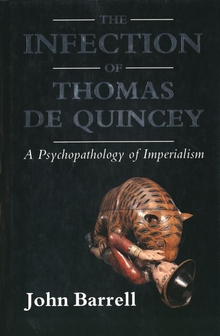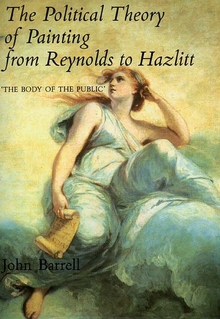The Infection of Thomas De Quincey
WARNING
You are viewing an older version of the Yalebooks website. Please visit out new website with more updated information and a better user experience: https://www.yalebooks.com
A Psychopathology of Imperialism
John Barrell
Thomas De Quincey, best known for his book Confessions of an English Opium Eater, was a journalist and propagandist of Empire, of oriental aggression, and of racial paranoia. The greater part of the fourteen volumes of his collected writings concerns the history, the colonial development, and increasingly the threat presented by the Orient in all its manifestations—human, animal, and microbiological. This remarkable book, which is an account of De Quincey’s fears of all things oriental, is also an extraordinary analysis of the psychopathology of mid-Victorian imperialist culture.
John Barrell paints a picture of De Quincey as a happy family man, apparently at ease with himself and with the rest of the world, but in fact harboring and expressing the most ferocious and brutal denunciation of Orientals of all kinds and dreaming of exacting from them a terrible retribution. Barrell shows that throughout De Quincey’s writings there is a repeated story of the murder or violation of a female victim—either within or outside De Quincey’s family—by an oriental criminal This story finds its way into almost everything he wrote: the various versions of his autobiography, his novels and short stories, his biographical and critical writings, his essays on politics, history, and science. Barrell attempts to understand this European terror of the East by an approach that is both historical and psychoanalytic. In particular, he explores the relation between childhood anxiety and imperial guilt in a body of writing in which the fear of violence within the family is imaged as a fear of the oriental, and the private and the public, the sexual and the imperial, the feminine and the exotic are endlessly intertwined.
This book will be fascinating reading for those interested in Victorian literature, in psychoanalysis and its relation to literature, in the history of imperialism, and in debates about the characteristics and effects of colonial discourse.
Publication Date: June 26, 1991







